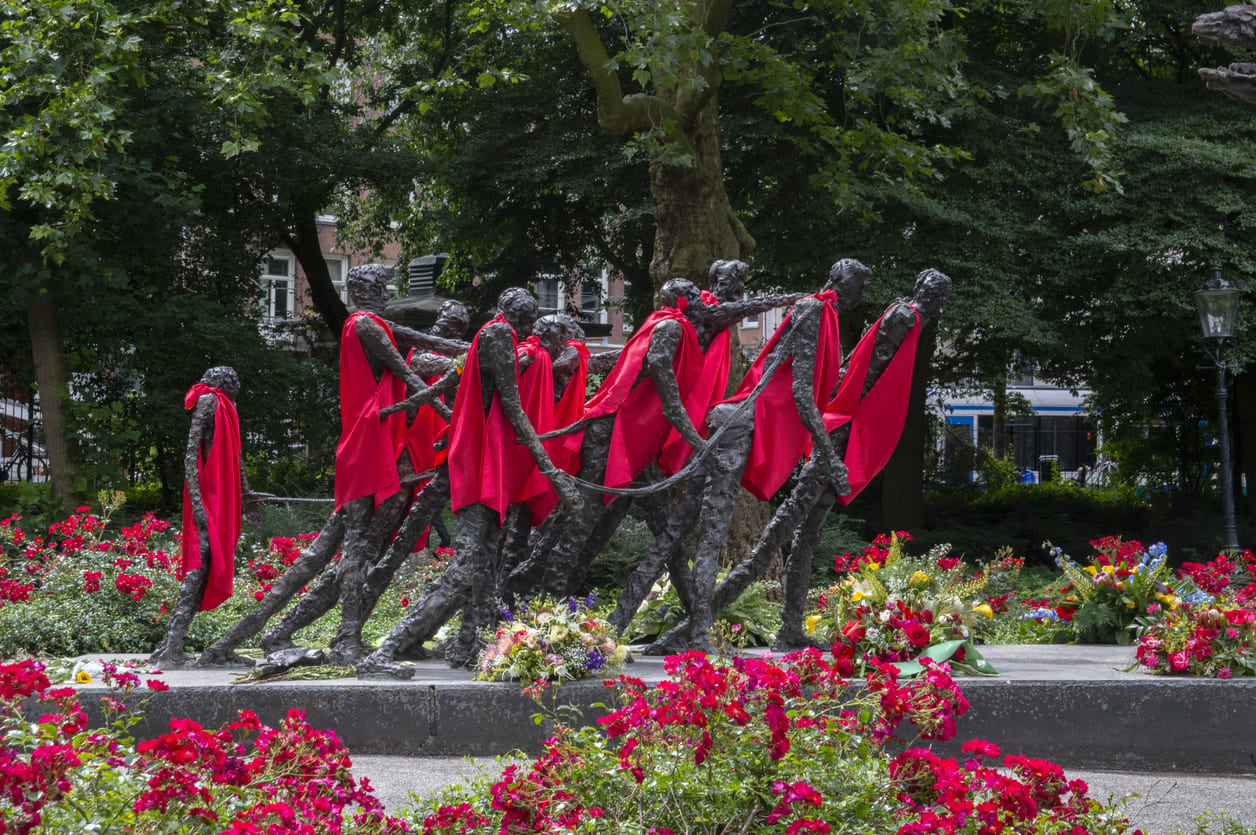Dates of Keti Koti in the Netherlands
| 2026 | Jul 1 |
| 2025 | Jul 1 |
| 2024 | Jul 1 |
Netherlands Holiday Calendars
Keti Koti is celebrated on July 1st in the Netherlands to commemorate the abolition of slavery in Suriname and the Dutch Caribbean in 1863. It is a day of remembrance, reflection, and celebration of freedom and equality.
Keti Koti: A Public Holiday?
Keti Koti is not a public holiday in the Netherlands. However, it is widely observed with ceremonies, festivals, and events, particularly in cities like Amsterdam, to commemorate the abolition of slavery and celebrate freedom.

Keti Koti
Keti Koti, meaning "the chains are cut" in Sranantongo, is celebrated on July 1st to mark the abolition of slavery in Suriname and the Dutch Caribbean. On this day in 1863, slavery was officially abolished in these regions, though enslaved people were required to work for another decade under "state supervision" before full emancipation in 1873. The celebration originated in Suriname and has grown in significance in the Netherlands, serving as a day of remembrance and celebration of freedom, equality, and resilience.
Observance of Keti Koti in the Netherlands
In the Netherlands, Keti Koti, also known as Dag der Vrijheden (Day of Freedoms), Emancipation Day, or Ketikoti, is observed with a mix of solemn remembrance and joyful festivities. The day often begins with ceremonies and moments of silence to honor the victims of slavery and reflect on the struggles faced by enslaved people. Speeches, prayers, and performances are held to acknowledge the history and its lasting impact on society. In cities like Amsterdam, the event is particularly prominent, with a memorial service at the National Slavery Monument in Oosterpark. Community leaders, activists, and government representatives participate in these commemorations.
The celebrations later shift to vibrant festivals filled with music, dance, and food that showcase the rich cultural heritage of Suriname and the Dutch Caribbean. Traditional attire, songs, and cuisine like roti and pom play a central role, highlighting the pride and resilience of these communities. Events such as parades, storytelling, and educational activities are organized to foster understanding and dialogue about slavery's legacy and the importance of equality.
Keti Koti is important because it encourages reflection on a painful part of Dutch history while celebrating the strength and culture of those affected by slavery. It serves as a reminder of the ongoing need to address social inequalities and promote inclusivity. For many, it is a day to honor the past, embrace cultural identity, and commit to building a society that values freedom and justice for all.
Keti Koti Observances
| Year | Date | Weekday | Name | Holiday Type |
|---|---|---|---|---|
| 2024 | Jul 1 | Mon | Keti Koti | Observance |
| 2025 | Jul 1 | Tue | Keti Koti | Observance |
| 2026 | Jul 1 | Wed | Keti Koti | Observance |
| 2027 | Jul 1 | Thu | Keti Koti | Observance |
| 2028 | Jul 1 | Sat | Keti Koti | Observance |



